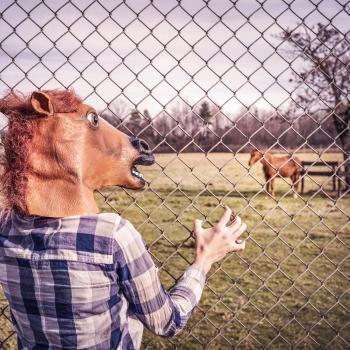We are doing a scripture study together: reading along through some scriptures and discussing the passages. This is the second post on The Bhagavad Gita.
From the Winthrop Sargeant translation of The Gita …
4) Here are heroes, mighty archers,
Equal in battle to Bhima and Arjuna,
Yuyudhana and Virata,
And Drupada, the great warrior;
5) Dhrstaketu, Cekitana
And the valorous King of the Kashis
Purujit and Kuntibhoja
And Shaibya, bull among men;
6) And mighty Yudhamanyu
And valorous Uttamaujas;
The Son of Subhadra and the Sons of Draupadi
All indeed great warriors.
7) Those of ours who are indeed distinguished,
Know them! O Highest of the Twice-born.
The leaders of my army
I name to thee by proper names
More names! It’s interesting to me that so many ancient epics have the habit of listing names. You see it in the Iliad, the Odyssey, and the Bible (although this one does predate those by quite a lot). It is part of the battle in the Greek epics too that you name the person you are facing and their lineage. Also like The Mahabharata, each character has several names and nicknames and ways that they are referred to.
So this is Duryodhana speaking still, telling Drona about all the warriors arrayed against them.
Yuyudhana and Virata are Pandava allies (apparently as good at archery as Bhima and Arjuna, which is saying a lot as Arjuna is really known for his archery skill!) Basically all these names are Pandava allies and not many are main characters.
Sons of Draupadi is good to note. Draupadi is the wife of all five Pandava brothers. Though it was common in those days for men to take multiple wives, it was not common for women to have multiple husbands. Draupadi is an interesting case. She was fated to be in this position. The Pandava brothers are so very close that it makes a lot of sense for them to share a wife. (They also have a number of secondary wives, including Arjuna is married to Krishna’s sister). There are a lot of wonderful stories about Draupadi to be told. Here, though, the thing to note is that her husbands and their sons are fighting together in this war.
And we’ve heard the name Draupada before, the ally of the Pandavas who is also their father-in-law (Draupadi’s father).
Now that Duryodhana has named the highlights of those against them, it sounds like he’s about to start naming all the allies on his side. Going into this war, Duryodhana (remember that he’s the bad guy!) had a larger army and more kings allied with him. He has the advantage, also, of being the person current ruling, so he has a lot of power and influence from that. The Pandava have spent the last thirteen years in exile, living in forests. Neither side was supposed to be gearing up for war at that point (the agreement was that when the Pandava returned, Duryodhana would pass the kingdom to them, though everyone knew that wasn’t going to happen), but they both were gathering allies.
There isn’t too much to say from the Sanskrit this week. One thing to look at is the “Highest of the Twice-Born.” Again, this is referring to Drona, the teacher of all the cousins. The word is dvija which is very literally “twice born.” Sargeant tells us that this is used to refer to a member of one of the top three castes. The second birth is the spiritual birth (rather reminds me of “born again”). This spiritual birth is done with a sacred thread ceremony. Wikipedia tells us that a non-Dvija person could be inducted into one of the Dvija varnas (the Brahmins, the Kshatriyas/warriors, and the Vaishyas/merchants+farmers) if he wished to pursue the duties associated with that varna. Despite that, one of the great challenges of Drona’s life is that he was born a Brahmin and chose to live as a Kshatriya. He faces consequences for that choice.















